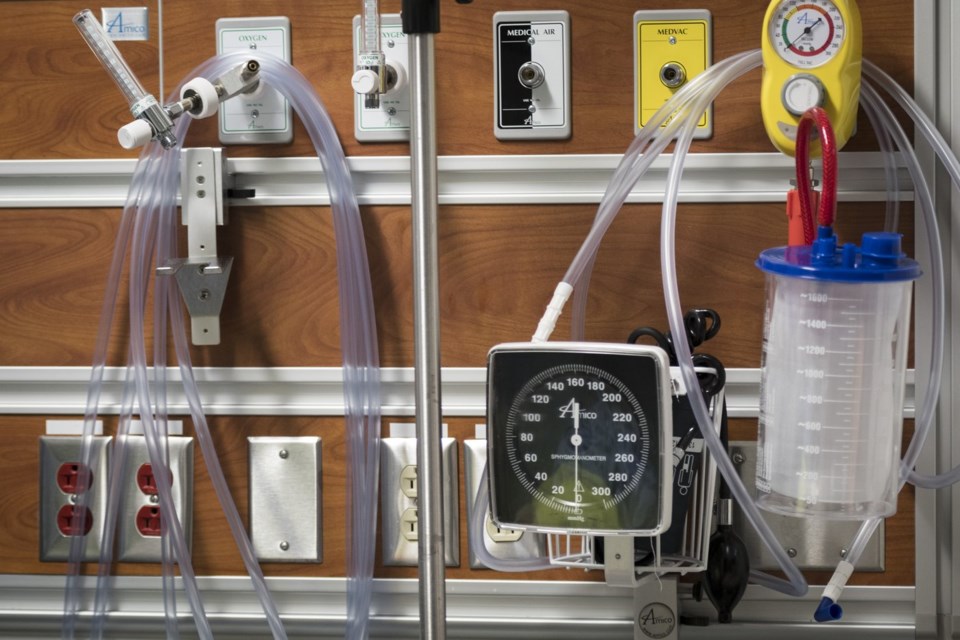MONTREAL — Quebec doesn't plan to create any special measures to attract United States-based physicians and researchers — even as other provinces are moving to capitalize on those professionals seeking to flee over mass government layoffs and deeps cuts to health programs.
While several provinces are implementing measures to accelerate doctors from south of the border, Quebec said it won't be one of them.
In an email to The Canadian Press this week, the province's Immigration Department says no special measures are planned to encourage American doctors to settle in the Quebec.
Santé Québec, the agency that manages health-care in the province, also stated in writing that no additional measures are currently planned by the agency to facilitate the recruitment of American doctors.
The agency specified that doctors who completed their training in the United States have access to the regular permit from Quebec's College of Physicians and must immigrate to Canada like any other person from abroad.
Recruiters have said there’s been a surge of interest from American doctors considering moving to Canada since the election of U.S. president Donald Trump in November.
Unlike Quebec, other Canadian provinces — Ontario, British Columbia, New Brunswick, Nova Scotia, and Saskatchewan — have decided to facilitate the recruitment process to cash in on the potential surge in interest.
In Ontario, the government is considering additional and specific measures to facilitate the work of health care professionals, including consultations on the possibility for physicians and nurses licensed in the United States to work legally in Ontario.
The Ontario government also wants automatic recognition of the credentials of physicians and nurses from other provinces and territories.
The Saskatchewan government launched a recruitment campaign in the United States earlier this month to encourage doctors to come practise in the province.
"We are committed to ensuring Saskatchewan physicians are well-compensated for their hard work, enjoy career fulfillment and have a positive work/life balance with a lower cost of living," Health Minister Jeremy Cockrill said in a statement.
Manitoba is also making efforts to attract American workers. Manitoba Health Minister Uzoma Asagwara recently announced that the province is in discussions with American physicians.
The province has one of the lowest numbers of physicians per capita in the country.
Doctors Manitoba, which represents more than 4,000 physicians and medical students in the province, had already launched a recruitment campaign in the United States shortly after the election, running ads in several states and creating a website to provide information to interested physicians.
The Canadian Federation of Independent Business urged other provinces to follow Ontario's lead and accelerate the reduction of interprovincial barriers and adopt mutual recognition. They also called on Quebec Premier François Legault to introduce a bill on accelerating interprovincial trade and adopting mutual recognition.
The Quebec college said it has observed what it described as "a slight increase in the number of American physicians applying for a license to practice in Quebec, as well as physicians who have a license to practise in Quebec, who left the province in the past to practice in the United States and who wish to return."
The college added that some physicians have mentioned their desire to obtain a license in Quebec specifically because of the Trump administration, but it has "no formal information" on the reasons that might motivate Americans to come to practise medicine in Quebec.
International medical graduates who wish to practise in Quebec must have the equivalence of their medical degree obtained in their country and recognized by the college.
It is also possible to obtain a restrictive license that permits practising in Quebec.
The amount of time it takes for a U.S. physician to obtain a licence depends mainly on how quickly required documents are submitted.
"For a family physician who is qualified, trained, and certified in the United States, we're talking about a few weeks," the college said in a statement, adding that in other cases, it can take months if a committee must consider the request.
For other medical specialties, it depends on whether the candidate is eligible to take the Royal College of Physicians and Surgeons of Canada's examination for their specialty. Those examinations are held yearly according to Quebec's college.
This report by The Canadian Press was first published April 19, 2025.
— with files from Liam Casey and Allison Jones in Toronto, Ont.
Canadian Press health coverage receives support through a partnership with the Canadian Medical Association. CP is solely responsible for this content.
Katerine Desautels, The Canadian Press




